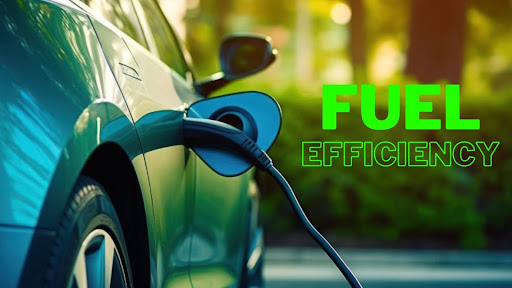The Impact of Custom Exhausts on Car Fuel Efficiency?

Custom exhaust systems have gained popularity among vehicle modifiers not only because they promise better performance and sound but also due to the assertion that these changes could affect gas mileage. The interaction between custom exhausts and fuel efficiency is tangled as it also depends on numerous elements. In this quest, we’ll look into the main features of custom exhaust Manchester systems and their possible role in vehicle fuel economy.
Understanding Custom Exhaust Systems:
Before we get to the effects on fuel efficiency, let’s first understand what custom exhaust systems mean. Replacing or modifying stock components of the exhaust system would include customizing a vehicle’s pre-installed package. These may include the manifold, catalytic converter mufflers and exhaust pipes.
Components of a Custom Exhaust System:
- Exhaust Manifold: Gathers exhaust gasses produced by the engine cylinders.
- Catalytic Converter: Transforms pollutants to less toxic effluents.
- Mufflers: Reduce exhaust noise.
- Exhaust Pipes: Divert the course of exhaust gasses.
Theoretical Impact on Fuel Efficiency:
Theoretically, a custom exhaust system could affect fuel efficiency through several mechanisms:
1. Improved Exhaust Flow:
The main reason behind the design of custom exhausts includes improvement in flow and reduction from back pressure. This can in theory increase engine efficiency and power. Nevertheless, the effect on fuel economy may not be as simple.
2. Reduced Weight:
Lighter than stock systems and other aftermarket exhausts contribute to weight savings. A car that requires less energy to move tends, on average, to be fuel-efficient.
3. Enhanced Combustion:
Better flow of the exhaust may increase combustion efficiency. Nevertheless, modern engines are well-tuned and often changes do not guarantee a big improvement of the fuel economy.
Practical Value and Effect on Fuel Efficiency:
Though the theoretical aspects may indicate room for improvement, real-world effects of custom exhaust systems have a more complicated picture.
1. Changes in Air-Fuel Ratio:
Customized exhaust alterations may affect the air-fuel proportion in an engine. If it is not wrongly recalibrated, this could result in poor combustion adversely affecting the rate of fuel burned.
2. Legal Implications:
Some changes may be outside of emission regulations resulting in more pollution. This has resulted in stricter emission standards across many jurisdictions.
3. Engine Tuning:
Some custom exhaust installations may require modifications to the engine’s electronic control unit (ECU) for maximum performance. Today proper tuning is a very important factor in preservation or enhancement of fuel efficiency.
Factors Influencing the Impact:
The impact of a custom exhaust system on fuel efficiency depends on various factors, including:
1. Quality of Installation:
On the other hand, a professionally installed custom exhaust system is more likely to yield positive results without negatively impacting on fuel efficiency. Such poorly installed systems may result in leaks and other flaws.
2. Driving Habits:
Driving style contributes significantly to fuel efficiency. Whether or not there are modifications to the exhaust, aggressive driving can still increase fuel consumption.
3. Vehicle Type:
However, the influence of custom exhausts may differ depending on vehicle types. High-performance automobiles could benefit from more noticeable improvements than everyday commuters.
Scientific Studies and Findings:
The effects on vehicle performance and fuel efficiency due to aftermarket modifications, custom exhaust systems in particular have been investigated by many researchers. Nevertheless, these outcomes are rarely clear-cut and efficiency of such alterations rely to a great extent on vehicle brands and conditions.
1. SAE Technical Papers:
Technical papers published by the Society of Automotive Engineers (SAE) are usually focused on exhaust systems and vehicle performance in connection with this. These papers also show a glimpse of difficulties to predict fuel efficiency because of aftermarket modifications.
2. Dynamometer Testing:
Some of the enthusiasts and manufacturers perform a dynamometer testing for measuring power and torque gains from the aftermarket exhaust system. Although such tests may shed light on improvements in performance, they do not always reveal a relation to the fuel savings.
Practical Considerations:
Before considering a custom exhaust system for the purpose of improving fuel efficiency, it’s essential to consider practical aspects:
1. Cost-Benefit Analysis:
A custom exhaust system can be costly. It is crucial to quantify the anticipated gains in fuel efficiency as compared with the whole cost of investing, by taking into account payback time for investment beforehand.
2. Manufacturer Recommendations:
Changing an exhaust system of a vehicle can make its warranty void. It is critical to review the manufacturer’s recommendations and warranty information before performing any modifications.
Conclusion:
In conclusion, the effect of custom aftermarket exhaust systems on vehicle fuel efficiency is a dynamic interchangeability between different aspects. While such theoretical advantages do exist, the real-life results can sometimes be unpredictable. When thinking about altering exhaust systems, correct installation, following legal regulations and practical issues are significant. In conclusion, drivers should not rigidly apply aftermarket modifications to their vehicles in the pursuit of better performance at all costs; but must always consider efficiency as well.








